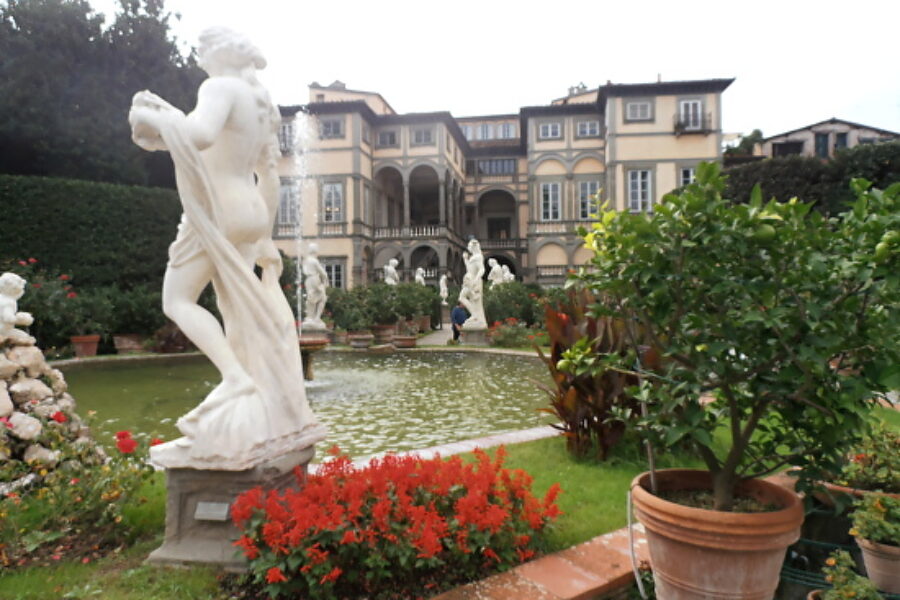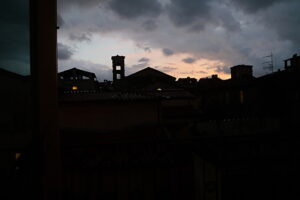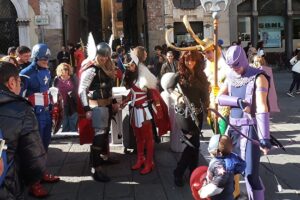Pretending to be Italian
I whisper, “Don’t talk to me. I don’t want anyone to know we aren’t Italian.”
Which immediately prompts Michael to begin speaking Italian with a very pronounced accent, “Spa-ghet-ti? Port-a-bella. Tor-te-llini. Gra-zie. Gra-zie. Ra-vi-ol-li. Bru-schet-ta. Spa-ghet-ti…” this recital along with his extremely exaggerated hand gestures can leave little doubt in anyone’s mind that we are indeed loud Texans.
I do try.

I have to give Michael credit, his preference in music being Willie and Waylon and the boys, he is managing to sit through two hours of live opera from the Italian boys: Puccini, Verdi, Mascagni, and Bellini. He doesn’t complain once.
Earlier in the week, we visited Palazzo Pfanner to see its gardens and a few of the interior rooms. When paying our entrance fee I noticed a brochure concerning an upcoming concert on October 6. We asked for further information. We were told it was free to the public and were advised to get to the Palazzo at least fifteen minutes early. The concert started at 9 p.m., Michael’s normal bedtime, but we made plans to attend. I also thought the concert was to be all instrumental—which Mike would have enjoyed. There I went thinking again.
Palazzo Pfanner
The owners of the Palazzo apparently had a penchant for mythology, for all of the gods and goddesses that are in the garden seem to be holding court. I have been a Greek (yes, I know we are in Italy–but these are Greek gods) mythology fan ever since the sixth grade, so I am right there with them and decide it is not a bad place to while away the hours — owner or visitor.

The construction of the Palazzo dates back to 1660, when the Moriconi family, members of the Lucca merchant nobility, commissioned its building. Ruined by bankruptcy the Moriconi family was forced in 1680 to sell the building to the Controni family, a silk merchant who had risen to the nobility.
Unbelievably the last owner was Felix Pfanner, a local brewer from Hörbranz (Austria), who acquired the entire structure after having set up his brewery there (at the request of the Mayor of Lucca) in 1846, the first in the Duchy of Lucca and one of the first in Italy. The historic Pfanner Brewery, the beer garden, and the cellars of the Palazzo closed in 1929.
The Palazzo is still the property of the Pfanner family, who, starting in 1995, has undertaken the demanding work of improvement by initiating restoration and has opened the Palazzo to visitors.








Leave a Reply
Your email is safe with us.